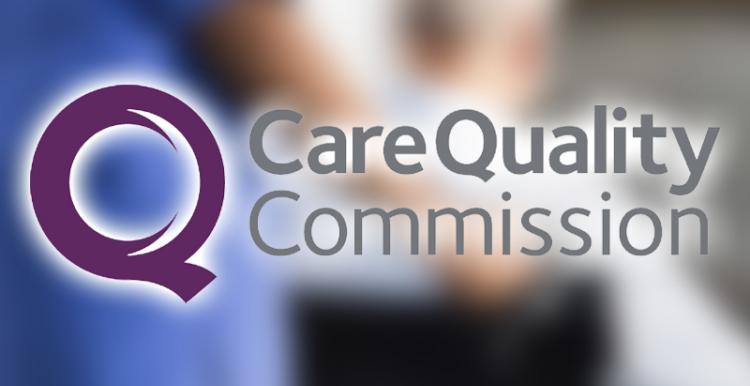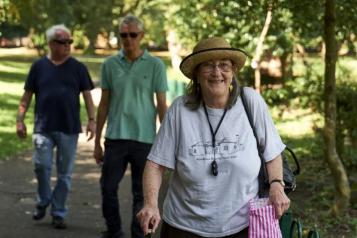Improvements needed in maternity services at Manchester University NHS Foundation Trust following CQC inspection

The inspection was carried out as part of CQC’s national maternity inspection programme. The programme aims to provide an up to date view of the quality of hospital maternity care across the country, and a better understanding of what is working well to support learning and improvement at a local and national level.
Inspectors looked at the areas of safe and well-led in the maternity services. Following the inspection:
- St Mary’s Hospital and Wythenshawe Hospital – the overall rating at both hospitals for maternity services has gone down from good to requires improvement, well-led has also declined from good to requires improvement. The rating for safe has dropped down from good to inadequate.
- North Manchester General Hospital – maternity services have been rated requires improvement overall and for being well-led. It has been rated inadequate for being safe. This is the first time maternity services at this hospital have been inspected and rated since the trust acquired the service from Pennine Acute Hospitals NHS Trust in April 2021.
Due to concerns found at this inspection, CQC has taken enforcement action and served the trust with a warning to focus its attention on rapidly making the necessary improvements in each maternity service.
The overall rating for the trust remains rated as good.
Carolyn Jenkinson, deputy director of secondary and specialist healthcare, said:
When we inspected maternity services at Manchester University NHS Foundation Trust, it was disappointing to see a deterioration in the level of care being provided to women, people using the service and their babies. Due to our concerns, we issued the trust with a warning notice requiring them to make rapid improvements.
“We found leaders had the skills and abilities to run maternity services and understood the issues they faced. However, they didn’t consistently address them in a timely way to ensure people were receiving safe care.
“Across all three hospitals, we were concerned that people weren’t assessed in a timely way. Opportunities to prevent or minimise harm to people were missed as all three maternity services didn’t have an effective and timely triage process in place to keep people safe.
“Also, there were delays in people having elective caesarean sections and induction of labour, which must be addressed as a priority to protect people and babies from coming to harm at such a vulnerable time.
“However, we did find some outstanding practice. For example, at Saint Mary’s Hospital, high dependency nurses provided care and treatment to people who required high dependency care alongside midwives, in four enhanced maternal care rooms.
“Since the inspection the trust have developed an action plan and started to make improvements. We will continue to monitor it closely, including through future inspections, to ensure they have been made and embedded, so people and their babies can receive safe and appropriate care. If this is not happening, we will not hesitate to take further action.”
Inspectors found the following during this inspection:
At Saint Mary’s Hospital:
- The service did not always control infection risk well.
- Staff did not always have access to enough suitable equipment to provide safe care and treatment to women, birthing people and babies.
- Staff did not always assess, monitor or manage risks to women, birthing people and babies.
- Managers were not always assured staff were competent.
- Risks and action plans were not always followed up or addressed in a timely way.
However:
- Staff worked well together for the benefit of women and people using the service and understood how to protect them from abuse.
- Staff kept equipment and premises visibly clean. They also kept good care records.
- The service engaged well with people using the service and the community to plan and manage services.
- Staff felt respected, supported, and valued. They were focused on the needs of people receiving care.
At Wythenshawe Hospital:
- Managers were not always assured staff were competent.
- Risks and action plans were not always followed up or addressed in a timely way.
- The service did not always control infection risk well. The environment in some areas posed an infection control risk.
- Staff did not always have access to enough suitable equipment to keep women and babies safe.
- Staff did not always assess, monitor or manage risks to people.
However:
- Staff understood the service’s vision and values, and how to apply them in their work.
- The service managed safety incidents well and learned lessons from them.
- Staff worked well together for the benefit of people and understood how to protect them from abuse.
- The service engaged well with women and people using the service, as well as the community to plan and manage services.
- Staff felt respected, supported, and valued. They were focused on the needs of people receiving care.
At North Manchester General Hospital:
- Staff did not always work well together for the benefit of women and people using the service.
- The service did not always control infection risk well.
- Staff did not always have access to enough suitable equipment to provide safe care and treatment to women and babies.
- Staff did not always assess, monitor or manage risks to people. Opportunities to prevent or minimise harm were missed as the service did not operate effective and timely triage processes.
- Staff could not always access care records and did not consistently manage medicines well.
- Managers were not always assured staff were competent.
- Risks and action plans were not always followed up or addressed in a timely way.
However:
- Staff understood how to protect people from abuse.
- The service mostly managed safety incidents well and learned lessons from them.
- The service engaged well with people and the community to plan and manage services.
- Staff were focused on the needs of people receiving care.
- Staff were clear about their roles and accountabilities.


